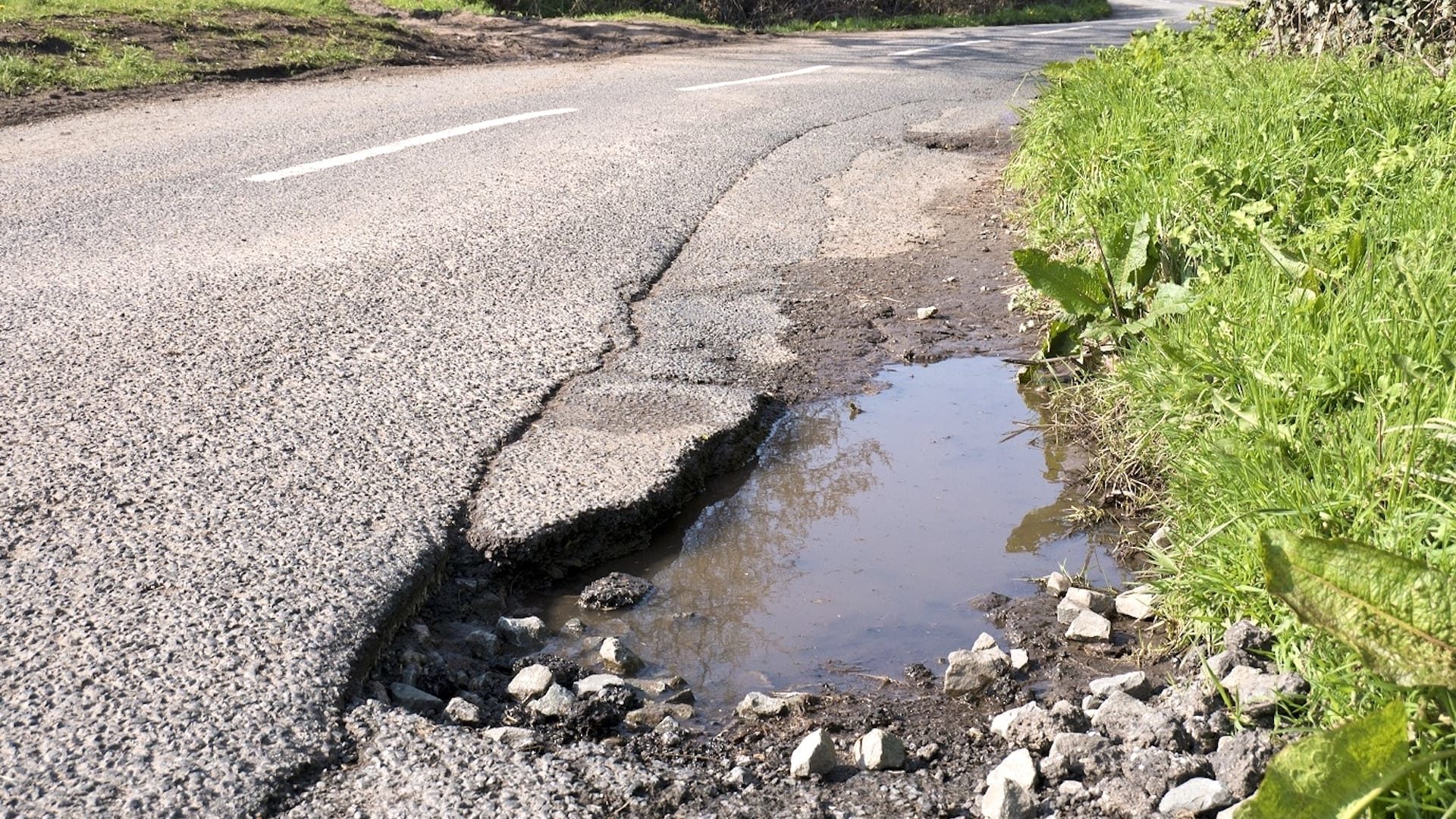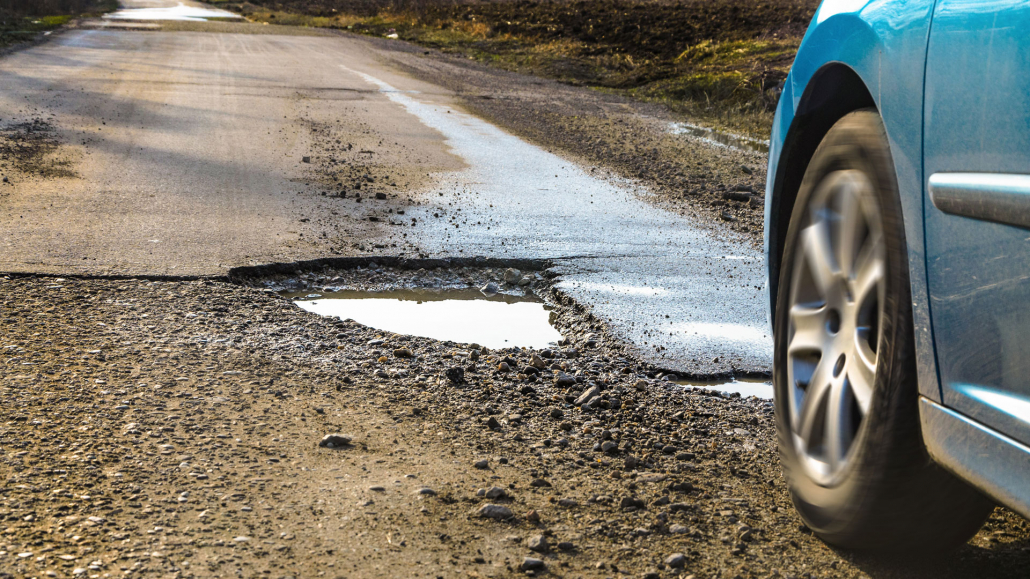
Every year, freezing winter weather wreaks havoc on Britain’s under-resourced roads. The destructive effects of ice, snow and rain water leave some roads resembling the surface of the moon.
According to the RAC Pothole Index, drivers are now 50 percent more likely to suffer a pothole-related breakdown than when the organisation first started collecting data 15 years ago.
So how are potholes formed? Put simply, all roads are constructed in layers. The top layer is water-resistant and curved to drain water off the road. Over time, cracks appear due to the stresses caused by traffic, but also through constant heating and cooling. The road expands during the day, but contracts overnight.
These small cracks allow water to seep below the surface and into the underlying layers of the road. During cold nights, the water freezes and expands. This ice thaws during the day, with the water flowing into a different section of the road. The pavement contracts and leaves gaps in the surface, where water can be trapped.
Traffic causes these cracks to widen, allowing even more water to seep in and freeze during the night. This constant freeze-thaw cycle weakens the road surface. As the material breaks down, a pothole is formed.
The hole story

Potholes cost Britain’s motorists an estimated £4 billion in repairs every year. Hit one, and you risk damaging your car’s wheels, tyres, steering, suspension or even bodywork. If you have been affected, click here for advice on how to potentially claim compensation from your local council or National Highways.
A company called Roadmender Asphalt has developed an Elastomac product that has been adopted by some councils. It’s a flowable material made from 70 percent recycled products, including road surface shavings and car tyres.
Elastomac welds itself to the road and delivers a totally waterproof and permanent repair. Its maker says that by eliminating the need to excavate the patch, the process requires 80 percent less material, with no waste to carry away. Contractors are able to complete five times more pothole patches per day.
The UK ranks 37th out of 141 countries on the World Economic Forum’s most recent road quality index. Singapore is in first place, followed by the Netherlands, Switzerland, Hong Kong and Japan.
READ MORE:
Do speed cameras still need painted road markings?